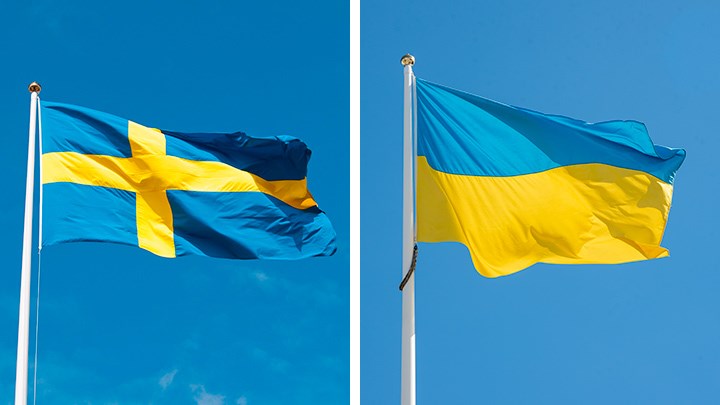Vice-Chancellor’s blog: One year of extraordinary resilience

It’s now been a year since Russia launched its war of aggression on Ukraine. Against all odds, Ukraine stood tall against the first attack on their capital and have since been able to free large areas of the occupied territories. It has, however, come at a terribly high price in terms of casualties and number of people displaced, colossal material losses and extensive environmental pollution.
The grave Russian violations of human rights, including the abduction of thousands of Ukrainian children to Russia, have horrified the outside world. Millions of people have been displaced in Ukraine and in Europe. The West stands united in their support of the Ukrainian people but in many other parts of the world, a more cautious approach is taken. China and Russia have strengthened their ties, which does not bode well for the future.
Gradually, the West have increased their supply of advanced weapons to Ukraine, which has of course improved the country’s defence capabilities. Just as important are the strong willingness to defend themselves and the resourcefulness among Ukrainian forces – not to mention the inconceivable resilience among the civilian population. The way they have been able to maintain civil society functions under extremely difficult circumstances is decidedly impressive. One example is lent by Ukrainian colleagues, offering lectures via Zoom from shelters in the midst of missile attacks. Örebro University has received a small number of Ukrainian colleagues and we hope to continue our support of the country’s research and education efforts.
The war has clearly shown that questions of sustainability and national security are interconnected. Not least in matters such as the access to energy, minerals and foods. Our university’s efforts within the framework of our Platform for a Sustainable Future (PSF) is a good example of how we can contribute to a more secure and more sustainable society. Another is the setup of local and national working groups for higher education institutions’ contributions to the capacity-building efforts of the Swedish total defence. Here, Örebro University is working closely with the County Administrative Board, among others. My personal view is that total defence training components should now be introduced on all our study programmes. For most as a smaller introductory module, but for students on certain programmes with the option to specialise in specific areas.
In Sweden, we have seen how domestic and foreign policy have hooked into one another in a way that affects our national security, not least the possibility to join NATO. In all likelihood, accession will be approved eventually and in the meantime, we must strengthen our civilian and military readiness in any way we can. We must also persevere in supporting the Ukrainian defence long term against the Russian aggressors, with preparedness to contribute to rebuilding the country when peace has come. Because it will.
Slava Ukraini!
Johan Schnürer
Vice-Chancellor
PS. Do listen to the beautiful love song “A Moonlit Night”, performed here by a Slovenian youth orchestra. A tribute to life, the song gives strength to withstand evil.
